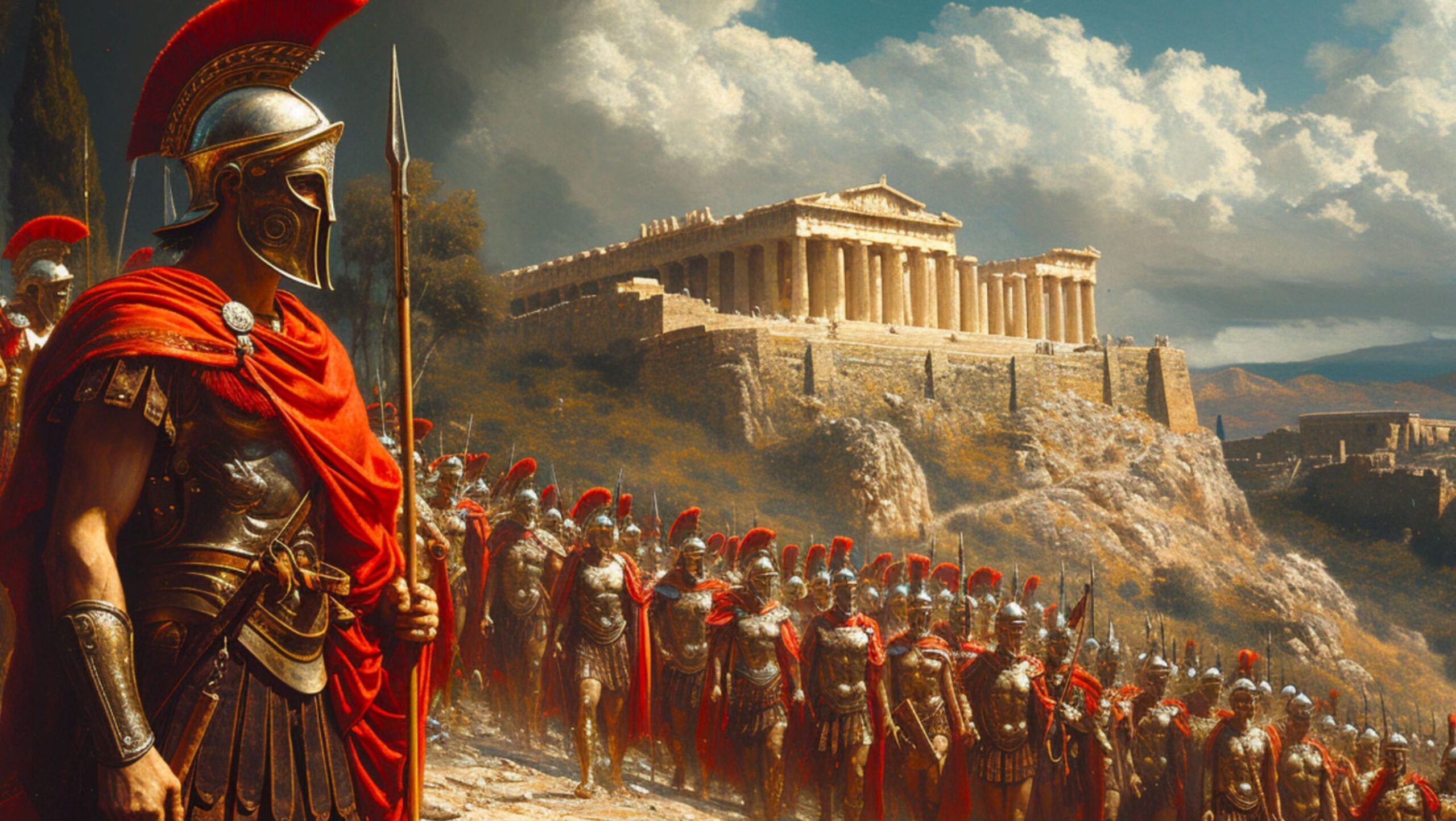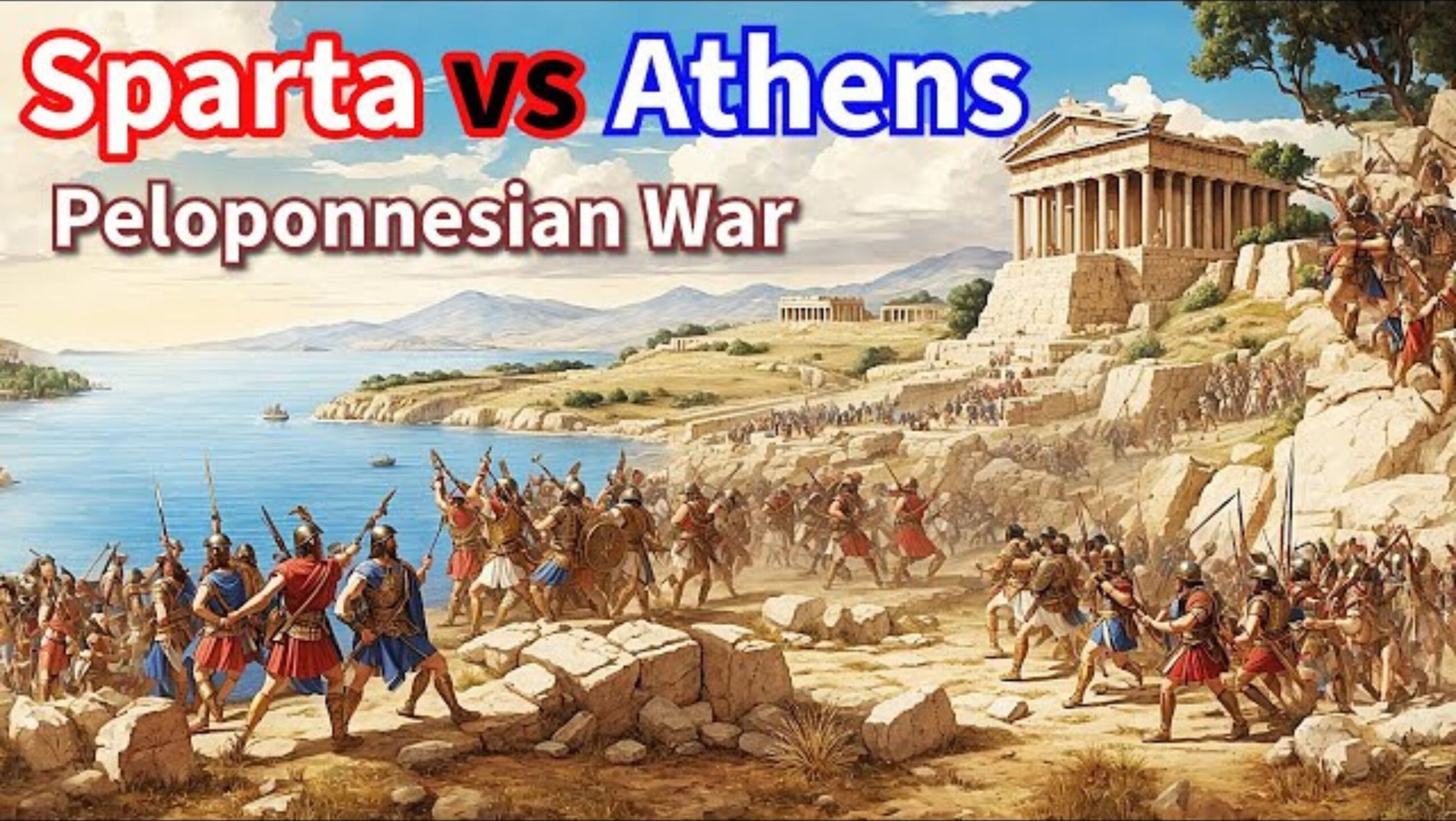Ever wondered how ancient Athens rose to prominence and became the envy of the Greek world? A big part of that story revolves around the contributions of the Delian League Contributions to Athens. This alliance was no ordinary partnership; it transformed Athens from a simple city to an empire that demanded respect far and wide across the oceans. The league started as a defensive pact against Persia but quickly morphed into something much bigger under Athenian leadership. It’s not every day you see such strategic genius at play, reshaping history and culture in ways still studied today.
Table of Contents:
- The Formation and Purpose of the Delian League
- Athens’ Growing Dominance Within the Delian League
- The Delian League’s Contributions to Athens’ Golden Age
- The Delian League’s Role in the Peloponnesian War and its Aftermath
- Conclusion
The Formation and Purpose of the Delian League: Delian League Contributions to Athens

Its purpose? To unite the Greek city-states against the looming threat of the Persian Empire.
The ancient Greek historian Thucydides provides insight into the league’s creation in his work, “History of the Peloponnesian War.” In Book 1.96, he writes:
“The Athenians, having taken command of the allied fleet, appointed Athenian generals to lead it and began to establish what came to be the Delian League. It was to be a permanent league set up to fight Persia and exact recompense for the losses suffered in the Persian War.”
Initially, each member state had an equal vote, regardless of size. Some contributed ships, while others provided money. The Athenian statesman Aristides was tasked with establishing the contribution rates for each member.
A treasury was set up on the sacred island of Delos, which the Athenians administered. This choice of location was symbolic, as Delos was considered the birthplace of Apollo and Artemis in Greek mythology.
The league included many city-states from the Aegean Sea region and Ionia, such as Naxos, Thasos, and Samos. Together, they formed a powerful military alliance to deter further Persian aggression.
Thucydides Book 1.96 on the Delian League’s Creation, Mutual Protection Against the Persian Empire, Initial League Members and Structure
The Delian League was more than just a military alliance – it was a bold statement of Greek unity and resolve. By banding together under Athenian leadership, the city-states sought to safeguard their independence and way of life.
Thucydides’ account provides valuable insight into the league’s early structure and purpose. Each member swore an oath of loyalty, committing themselves to the common cause.
This commitment was tested in the league’s early years, as it launched several successful campaigns against Persian forces in Asia Minor and the Aegean.
But as time passed, the balance of power within the league began to shift. Athens, with its powerful navy and growing ambitions, started to assert greater control over league affairs.
This transition from a defensive pact to an Athenian-led empire would have far-reaching consequences for the Greek world.
Athens’ Growing Dominance Within the Delian League: Delian League Contributions to Athens
What started as an alliance of equals quickly became Athenian hegemony. The tipping point was the island of Naxos.
In 467 BC, Naxos attempted to secede from the league. Athens responded swiftly and brutally, besieging the island into submission. This marked a turning point in league relations. Athens was now calling the shots.
The victory at the Battle of Eurymedon in 466 BC further solidified Athenian supremacy. This decisive naval engagement against Persian forces gave Athens unrivaled prestige and power within the league.
Emboldened, Athens began to tighten its grip. In 454 BC, it transferred the league treasury from Delos to Athens, ostensibly for safekeeping from Persian threats. But to many, it signaled that the league had become an extension of Athenian imperialism.
Athens also started to dictate league policies and demand higher tribute payments from members. The allies had less autonomy and more obligations to their Athenian overlords.
The Reduction of Naxos, The Battle of Eurymedon, the Transition from Alliance to Athenian-led Empire, Athens’ Control Over League Finances and Policies
The subjugation of Naxos and the triumph at Eurymedon were turning points in the Delian League’s history. They marked Athens’ transformation from first among equals to undisputed hegemon.
Athens now had a stranglehold on league finances and decision-making. The annual tribute lists, recorded from 454 BC onward, reveal the extent of Athenian control over its “allies.”
City-states that once joined the league freely now paid heavy tributes to Athens, with little say in how the money was spent. Democratic reforms were pushed on league members, molding them in Athens’ image.
The league had become a tool for Athenian ambition, and its members paid the price.
But Athens’ dominance came at a cost. Resentment festered among the allies, sowing the seeds for future conflicts that would ultimately unravel the league – and Athens itself.
Key Takeaway: Delian League Contributions to Athens
The Delian League started as a unity pact against Persia and morphed into Athens’ empire. It showed Greek solidarity but shifted to Athenian control, foreshadowing future conflicts.
The Delian League’s Contributions to Athens’ Golden Age: Delian League Contributions to Athens
The Delian League was like a secret ingredient that really brought out the shine in Athens during its most glorious days. The influx of tribute from league members filled Athens’ coffers, funding an era of prosperity and cultural flourishing.
Increased Trade and Prosperity
As the leader of the Delian League, Athens saw a surge in trade across the Aegean Sea. The league’s naval fleet, primarily funded by member contributions, secured vital trade routes and brought Athens immense wealth.
Greek cities within the league enjoyed a period of economic growth, with the free flow of goods and resources between member states. This trade boom lined the pockets of Athenian merchants and artisans.
Initially based on the sacred island of Delos, the league’s treasury was moved to Athens in 454 BCE. This controversial decision made Athens the undisputed economic powerhouse of the ancient Greek world.
Funding for Athenian Building Projects like the Parthenon
The wealth amassed from the Delian League’s tribute funded some of the most iconic building projects of ancient Greece. The Parthenon temple, a shining example of classical architecture, was financed by the league’s treasury.
Under the visionary statesman Pericles, Athens underwent a massive public works program. Monuments, temples, and public buildings sprung across the city, transforming it into a cultural marvel.
Thanks to the league chipping in with funds, Athens enjoyed a heyday of stunning architecture. Without the steady stream of tribute, Athens may not have had the resources to create such enduring wonders.
Expansion of Athens’ Naval Supremacy: Delian League Contributions to Athens
The Delian League cemented Athens’ status as the dominant naval power in the Aegean. Member states contributed ships and men to the league’s fleet, which Athens commanded with unrivaled skill.
This powerful city-state used the league’s naval might to protect its interests, quell rebellions, and project its influence across the Greek world. Athens’ naval supremacy, built on the backs of league allies, was a key factor in its rise to glory.
Cultural and Intellectual Flourishing
Athens’ golden age was not just a time of economic prosperity and military might. This period stood out as a time when culture and intellect hit new heights like never before.
The wealth and stability provided by the Delian League created an environment where art, philosophy, and literature could thrive. Athens became a magnet for the brightest minds of the ancient world.
Playwrights like Sophocles and Euripides pushed the boundaries of theater. Socrates and Plato were thinkers who dove into big questions about what’s right and wrong and the essence of being alive. Artists and sculptors crafted works of breathtaking beauty.
Thanks to the Delian League chipping in, a cultural boom took place that really left its mark on Western civilization. Athens’ golden age set the stage for centuries of artistic and intellectual progress.
The Delian League’s Role in the Peloponnesian War and its Aftermath: Delian League Contributions to Athens
For all its contributions to Athens’ golden age, the Delian League also sowed the seeds of conflict. As Athens tightened its grip on the league, tensions with rival powers reached a breaking point.
Tensions with Sparta and the Peloponnesian League

Athens’ growing power and influence through the Delian League did not go unnoticed by other Greek city-states. Sparta, the traditional enemy of Athens, viewed the league’s expansion with increasing alarm.
Sparta had its own alliance, the Peloponnesian League, which opposed Athens’ ambitions. As the two leagues vied for dominance, diplomatic relations between Athens and Sparta deteriorated.
The Delian League’s aggressive actions, such as subjugating rebellious member states, further strained the already tense relationship. The war between the two powers seemed inevitable.
Key Battles and Sieges
In 431 BCE, the Peloponnesian War broke out between Athens and Sparta. The conflict would rage for nearly three decades, consuming the Greek world in violence and turmoil.
The Delian League and the Peloponnesian League clashed in a series of brutal battles and sieges. Athens, with its powerful navy, initially held the upper hand, raiding the Peloponnesian coast and blockading Spartan ports.
However, Sparta’s formidable land army eventually turned the tide. The Spartans didn’t hold back when they stormed into Attica, Athens’ backyard, tearing through the land and leaving destruction in their wake. The once-mighty Athenian fleet suffered a string of devastating defeats.
After years of grinding warfare, Athens finally succumbed to Sparta in 404 BCE. The Peloponnesian War wrapped up with Sparta taking the win, which totally crushed Athens’ hopes of being the top dog.
The war left Athens bankrupt and demoralized. The Delian League, which had been the foundation of Athenian power, crumbled in the aftermath of defeat.
Sparta, now the undisputed master of Greece, dismantled the Athenian empire piece by piece. Long resentful of Athenian domination, the league’s member states eagerly threw off the yoke of their former master.
Athens, stripped of its empire and its glory, entered a period of decline. The golden age, fueled by the wealth and power of the Delian League, was over.
Lasting Impacts on Greek History: Delian League Contributions to Athens
The journey of the Delian League, with its highs and lows, really shook up what we know about ancient Greece. As the league morphed into something straight out of Athens, with all its grandeur and ambition, it was a stark reminder of what can go wrong when power gets too big for its britches.
The Peloponnesian War, partly sparked by tensions over the league, reshaped the Greek world. The battle damaged the leading city-states, making them easy targets for threats from outside.
In the wake of Athens’ defeat, Sparta emerged as the dominant power in Greece. However, Spartan hegemony would prove short-lived, as other city-states rose to challenge its supremacy.
The legacy of the Delian League and the Peloponnesian War would echo through the centuries. The stormy times we’ve been through taught us lessons that future leaders and soldiers will use to shape their strategies for years to come.
The story of the Delian League is one of triumph and tragedy, of golden ages and devastating conflicts. It is a testament to ancient Greece’s enduring impact on human history.
Key Takeaway: Delian League Contributions to Athens
The Delian League transformed Athens, funding its golden age of prosperity, architecture, and culture. However, it also sparked tensions that led to the Peloponnesian War, highlighting the dangers of unchecked power.
Conclusion: Delian League Contributions to Athens
In essence, what we’ve explored here isn’t merely an account of ancient alliances or military strategies. It’s about understanding how the Delian League contributions to Athens laid down tracks for what many call ‘the golden age.’ Through their collaborative efforts—be it financial muscle or military might—they sculpted a narrative not just for themselves but for all posterity. So next time you hear about this legendary era in Athenian history, remember—it was teamwork on an epic scale that made those glory days possible.

